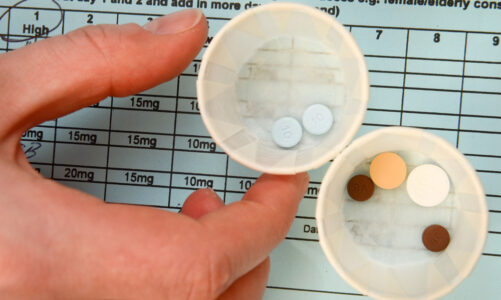The anterior cruciate ligament or the ACL is one of the 4 major ligaments which serve the purpose of stabilizing the knee joint. In fact, it would be fair to say that the ACL is the main ligament that stabilizes the knee. This ligament prevents excessive rotation of the knee, that can commonly occur with cutting and pivoting motions involved in sports like football, soccer, basketball and other such sports. When the ACL is torn, it will not work. And when the ACL does not work, these rotational forces will be automatically transmitted to other knee structures, resulting in meniscus tears and damage to the joint surface cartilage.
An ACL tear is one of the most common knee injuries that occur while playing sports and around 80% of sports-related ACL injuries are non contact injuries. If the ACL is not completely torn, the recovery and rehabilitation may last around 6 to 9 months. ACL tears are also likely to occur during rough play, road accidents, falls, or work-related injuries. Along with an ACL injury, other ligaments and the meniscus cartilage may get damaged during such an injury.
Firstly, orthopedic surgeons give a big NO on resuming sports with a torn ACL. When playing with an injury, the patient will usually remain cognizant of the fact that they are having an ACL tear, which is likely to change their mechanics to keep from causing themselves pain. This may increase risks of getting hurt or injured while playing and it is not even sure that you will have no or less pain. Many people who play sports with ACL tears end up worsening their condition.
With a rise in the number of ACL injuries requiring surgery in people of different ages, it is important to stay informed on the dangers of having an ACL tear, when they can occur, risks of resuming sports with torn ACL and delaying surgery for complete ACL tears.
Playing sports with a torn ACL- What’s the risk?
Most athletes who participate in sports which involve running, jumping, pivoting such as basketball, football, soccer or cricket are likely to require ACL reconstruction surgery to continue playing sports and resume their regular lifestyle. Playing sports with a torn ACL can lead to recurrent episodes of knee instability which can interfere with the ability to perform effectively and may even result in further injury to the knee cartilage, meniscus , or both.
Risks of delaying ACL reconstruction surgery
It is not a wise choice to delay your ACL reconstruction surgery if the orthopedic surgeon has suggested surgery. The torn ACL exposes the meniscus to more damage. When the ACL is torn, the cartilage is also exposed to possible damage. This is why ACL tears and a torn meniscus often occur simultaneously. Once the meniscus is damaged, it is difficult to repair. If the ACL is fully torn, it will not heal on its own. Pristyn Care houses expert orthopedic surgeons with great skill and efficiency in repairing the ACL with less invasive surgical approach. No amount of rest, therapy or rehabilitation can restore the torn ACL. A torn ACL can never regenerate by itself and will require surgical reconstruction.
Seek medical care if you have a knee injury with symptoms of ACL tear such as a loud pop sound at the time of injury, knee swelling, difficulty in moving the knee, or instability in the knee.
Most successful treatment for ACL tears
Treatment for ACL tears will depend on the Grade of the ACL tear and the patient’s health conditions.
If the ACL is not completely torn, the orthopedic surgeon may suggest non-surgical treatment options that may include rest, rehabilitation, exercises, and wearing a knee brace. If the patient gets no relief from the symptoms or is unable to carry out regular activities, ACL surgery might be suggested to improve the patient’s quality of life.
Minimally invasive ACL reconstruction surgery reconstructs the torn ACL. This surgery is ideally performed after the patient has recovered from the initial injury, the swelling has resolved to a great extent and the patient has regained a fair amount of knee motion and strength. If the knee is still weak, swollen or stiff at the time of surgery, the recovery may take longer. When performed by skilled orthopedic surgeons, ACL surgery is as much as 95% successful in restoring maximum knee stability and satisfaction, and the patient can typically return to his sports within 6 to 9 months after surgery.
Benefits of undergoing less invasive ACL reconstruction surgery at Pristyn Care
- Smaller incision, therefore a faster and less painful recovery
- Less blood loss during the surgery
- Smaller post-operative scar
- Minimal risk of infections after surgery
- Painless walking without support after the surgery
- restore complete knee motion and bending faster after this surgery
- Can do exercises such as squats and lunges within 1 week after surgery.
- Can go for jogging after 1 month of surgery
- Back to running and regular sports in just 3 months after surgery




